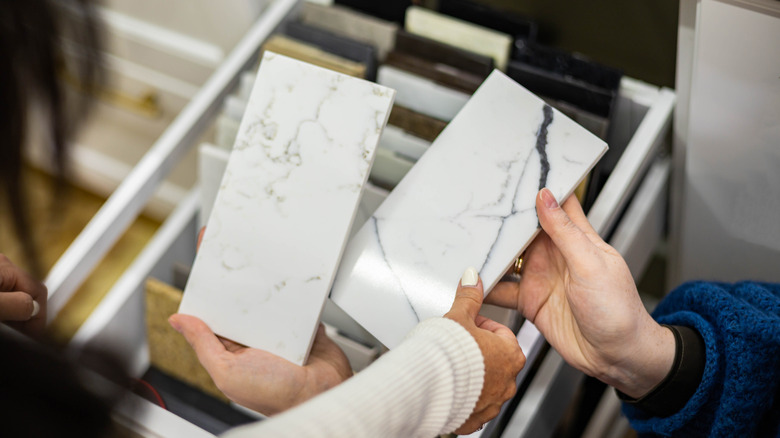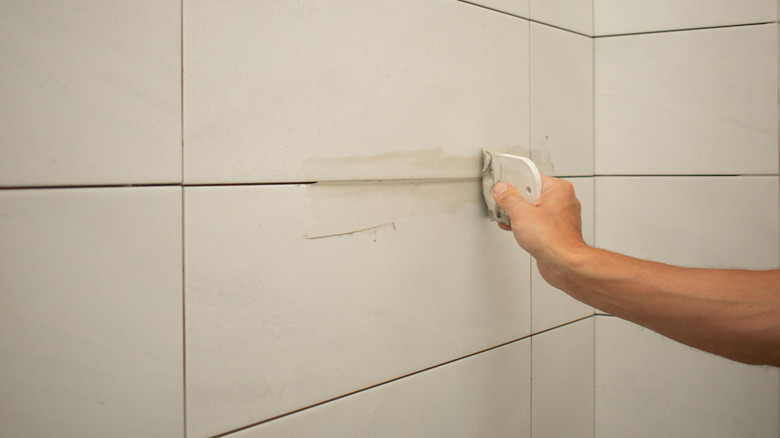The One Detail Most People Get Wrong When Picking Out Shower Tiles
We may receive a commission on purchases made from links.
Redoing your shower means lots of fun decorative decisions. You have probably spent hours scrolling through different types of tile in various colors, shapes, sizes, and materials. You've researched different patterns, from horizontal to vertical, and herringbone to crosshatch. You've considered how your chosen tile will look next to your flooring and wall paint color. But one thing you may not have thought about when picking out shower tiles is grout.
Grout is the least glamorous part of a tile shower. Most of us don't see a stunning bathroom in a magazine and think, "look at those grout lines!" However, grout should not be overlooked when choosing tile. If you hate cleaning grout, small tiles are one of the worst shower tile options. Small tiles mean more grout lines and more maintenance. Instead, choose a large-format tile that comes with less grout to scrub. Picking the right size tile can end up saving you a lot of time and effort in the future.
Grout option to consider for your shower tiles
Many homeowners also overlook the fact that grout does not need to be white. To choose the right grout color for your tile will again depend on how much cleaning you want to do. White grout can stain and shows mold more easily than a darker color grout. If you have white tiles, white grout needs to match them exactly, or else they will look perpetually dingy. Choosing grout the color of your tiles has a seamless look and won't draw attention to dirty grout lines. A gray or black grout will have a cool framing effect and highlight the individual tiles while hiding grime in the process. Whatever color grout your choose, add extra protection from mildew with a sealant such as Meuvcol Grout Sealer.
There are several types of grout to consider, including sanded cement, unsanded cement, polymer resin, single component, and epoxy. Sanded cement is the least moisture-resistant and a bad choice for showers, and unsanded grout can crack if grout lines are thicker than ⅛ of an inch. Epoxy grout is resistant to moisture, but costs more than other grout options. Polymer resin and single component grouts are nonporous, stain and moisture resistant, DIY-friendly, and relatively affordable.

